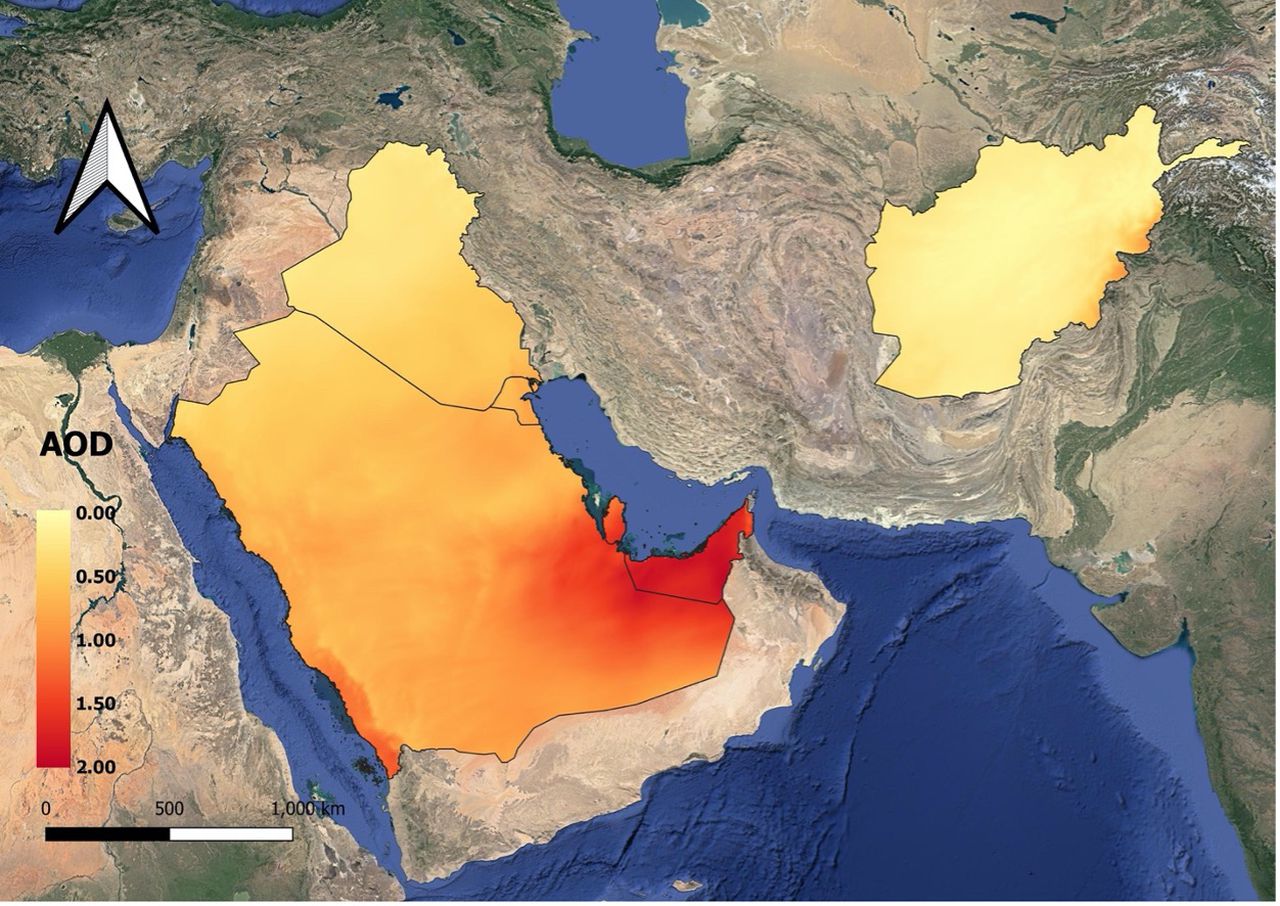NASA helping find Gulf War vets in toxic air paths
Researchers are using NASA satellite records to gather data around specific military bases in Southwest Asia in the years after Sept. 11, 2001. The hoped-for result is to help medical researchers at the U.S. Department of Veterans Affairs (VA) find veterans affected by widespread toxic pollution in the war zone.
Veterans were exposed to airborne environmental hazards in the area including Agent Orange, burn pit smoke, sandstorms and fumes from aircraft exhaust.
“They put their lives on the line for our country, and they deserve every effort to protect their health,” said lead researcher Meredith Franklin of the University of Toronto.
“It’s important to our efforts to understand and help address the risk our veterans face not just from combat, but from the conditions in which they served,” VA pulmonary physician Eric Garshick said.
The new NASA-funded online resource compiles satellite data around specific bases. That data can help identify chemical and dust pollution and where it came from. “It’s a unique opportunity,” Franklin said.
Franklin’s team used those satellite images to create a web-based “exposure assessment tool” called the Source-Differentiated Air Quality System (SDAQS). It lets researchers study air quality about each base directly through visualizations and data.
That includes data on PM2.5, tiny particles small enough to go deep in the lungs and respiratory tract, NASA said. Using a NASA algorithm, researchers can measure the PM2.5 concentrations.
The VA will try to link that information with the deployment histories of 5,000 veterans. The goal is to identify conditions in veterans based on the concentrations and types of pollution in their areas.
The Biden administration started a federal effort to respond to the toxic environments veterans faced, and Congress passed the PACT Act to expand VA health care and benefits for veterans exposed to burn pits and toxic services.
“It’s very fulfilling to connect NASA data to efforts to support veteran’s health,” Franklin said. “They put their lives on the line for our country, and they deserve every effort to protect their health.”
